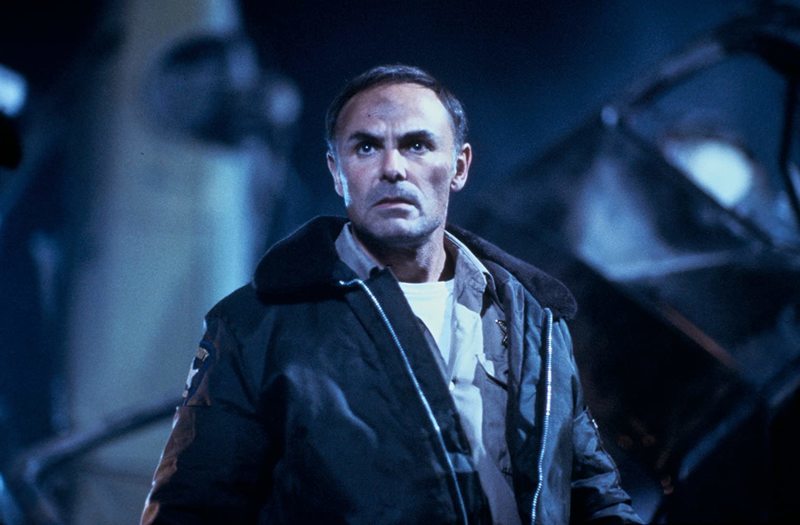As part of our launch for the newly redesigned RogerEbert.com, we are highlighting articles handpicked by some of our regular writers. You can find links to each of them below along with the photos and bios for each writer. (Click here for Part 1)—Chaz Ebert

7.
The Hitchcock Collection reviewed by Glenn Kenny, Critic
Excerpt: “My mom was a terribly sensitive and highly intelligent person but during the early years of her life she did not balk at being an average person: in fact given the challenges of her upbringing, being average was something to aspire to, and getting your kids to ‘above average’ was considered a signal achievement. Her cognizance of what Hitchcock was up to, and her appreciation of it—and her pure pleasure in the Hitchcock films that really were pieces of cake, such as ‘To Catch A Thief’—not only gave her something to talk about with a son whose other cinematic interests got increasingly hermetic over certain years, it gave me a frame of reference that barred me from becoming too much of a film snob at long last.”

About Glenn: Glenn Kenny is the editor of A Galaxy Not So Far Away: Writers and Artists On 25 Years of ‘Star Wars’ (Holt, 2002) and the author of Robert De Niro: Anatomy of An Actor (Phaidon/Cahiers du Cinema, 2014). His writings on the arts have appeared in a wide variety of publications, which include the New York Times, the Los Angeles Times, Rolling Stone, the Village Voice, Entertainment Weekly, Humanities, and others. From the mid-1990s to the magazine’s 2007 folding, he was a senior editor and the chief film critic for Premiere.
There he commissioned and edited pieces by David Foster Wallace, Tony Kushner, Martin Amis, William Prochnau, and other well-regarded writers. He also wrote early features on such soon-to-be-prominent motion picture figures as Paul Thomas Anderson and Billy Bob Thornton. He currently contributes film reviews and essays to RogerEbert.com and to Vanity Fair Online, Decider, the Criterion Collection website, and other outlets. He has made numerous television and radio appearances and appears as an actor in Steven Soderbergh’s 2009 film The Girlfriend Experience, and Preston Miller’s 2010 God’s Land. He was born in Fort Lee, New Jersey and has been a resident of Brooklyn since 1990; he lives in that borough with his wife.

8.
“The Souvenir“ reviewed by Monica Castillo, Critic
Excerpt: “To steal a quote from ‘BoJack Horseman,’ ‘When you look at someone through rose-colored glasses, all the red flags just look like flags.’ With the combined efforts of Hogg, Swinton Byrne and Burke, ‘The Souvenir’ recreates the sensation of riding an emotional roller coaster with an unstable partner: the dizzying highs, the free-falling lows and the unpredictable sharp turns that can be either terrifying or thrilling. The title of the movie comes from Jean-Honoré Fragonard’s painting that’s featured heavily throughout Julie and Anthony’s doomed affair, but ‘The Souvenir’ doubles as a reference to the unseen but still painful bruises you can get with a relationship as rocky as theirs. Some days, I miss those rose-colored glasses, but I have the bruises to remind me why I took them off in the first place.”

About Monica: Monica Castillo is a freelance writer and University of Southern California Annenberg graduate film critic fellow. Although she originally went to Boston University for biochemistry and molecular biology before landing in the sociology department, she went on to review films for The Boston Phoenix, WBUR, Dig Boston, The Boston Globe, and co-hosted the podcast “Cinema Fix.”
After a stint as an Entertainment Reporter for International Business Times, she’s back to freelancing for RogerEbert.com, NPR, Village Voice, Tribeca Film, Paste Magazine, Remezcla, among others. She is a member of the National Association of Hispanic Journalists, Women Film Critics Circle, and served as a co-chair of the Boston Online Film Critics Association. Monica has traveled to a few film festivals, met a couple of living legends, and has some great stories about hitchhiking to red carpet premieres. She can usually be found online talking about the film she just watched.

9.
“Fences“ reviewed by Odie Henderson, Critic
Excerpt: “Wilson’s plays are rich, poetic, wordy affairs tinged with music, the magical nature of myth, and symbolic elements that work extremely well as live theater. Since theater is an intimate medium, the general consensus on translating plays to screen is to ‘open up’ the play, which quite often destroys the natural fabric of the work. The masterful thing about Denzel Washington’s direction here is that he doesn’t exactly open up the play. Instead, he opens up the visual frame around the players. He and cinematographer Charlotte Bruus Christensen use the entire screen to occasionally dwarf the characters inside the backyard setting where much of the film takes place. At other times, tight framing gives an air of claustrophobia that’s almost suffocating. Throughout, there’s clear evidence that careful thought has been put into the quiet visual architecture of this film; there are several visual motifs that support the themes in Wilson’s words, and not once does a character seem to be in the wrong spot.”

About Odie: Odie “Odienator” Henderson has spent over 33 years working in Information Technology. He runs the blogs Big Media Vandalism and Tales of Odienary Madness. Read his answers to our Movie Love Questionnaire here. A lover of film noir, musicals, Blaxploitation, bad art and good trash, Odie has been a Far Flung Correspondent since 2011. He has written for Slant Magazine’s The House Next Door blog since 2006. He is the troublemaker responsible for the Black History Mumf series at Big Media Vandalism.
His work has also appeared in The Village Voice, Vulture, Cineaste Magazine, MovieMezzanine, Movies Without Pity, Salon, and of course, here at RogerEbert.com. In 2013, Odie entered the world of film festival programming, presenting 9 movies at the Off Plus Film Festival in Krakow, Poland. Based in the NYC area, Odie enjoys writing code almost as much as he enjoys writing prose. Something is wrong with that guy.

10.
“The Invisible Man“ reviewed by Tomris Laffly, Weekly Critic
Excerpt: “Mostly because we are in the era of #MeToo, with the once-protected monsters of the real world finally being exposed for what they are, their terrorizing powers examined in stupendous films like Kitty Green’s ‘The Assistant’—a long-delayed revolution that shouldn’t be cheapened or misused. […] It wouldn’t be a stretch to suggest that part of what Green prioritized with her masterpiece is also what lends ‘The Invisible Man’ (and eventually, its visible woman robbed out of options) its cumulative strength—an unforgiving emphasis on the loneliness emotional violence births in the mistreated. There is a constant in all the sharply edited, terrifying set pieces lensed by Stefan Duscio with elegant, clever camera moves in bedrooms, attics, restaurants and secluded mansions: a vigilant focus on Cecilia’s isolation. That isolation, intensified by Benjamin Wallfisch’s fiendish score, happens to be her concealed assailant’s sharpest knife. A deadly weapon others refuse to see and acknowledge.”

About Tomris: Tomris Laffly is a freelance film writer and film critic based in New York. She regularly contributes to Time Out New York, Film Journal International, Film School Rejects and RogerEbert.com, and her byline has appeared in Indiewire, Variety and Vulture, among other outlets.
She has a special interest in the awards season and women in film, covers various film festivals throughout the year including New York Film Festival, Sundance and Telluride and tweets from @TomiLaffly.

11.
John Saxon (1935-2020) tribute written by Simon Abrams, Critic
Excerpt: “But for many movie lovers, Saxon will always be Roper from ‘Enter the Dragon,’ including Luz Leguizamo, who named her son John after Saxon (from my interview with John Leguizamo: ‘She liked that dark, brooding type’). He was handsome and muscular, though sometimes his physique was more hindrance than help, according to Gloria Martel: ‘John worked out all the time and some producers thought he was too big.’ Saxon played up his sex appeal in a few daytime soaps throughout the ‘80s and ‘90s, including recurring roles on ‘Dynasty,’ ‘Another World,’ and ‘Melrose Place.’ Saxon always stood out in a crowd—a Variety review of ‘Enter the Dragon’ noted that Saxon is ‘surprisingly adept in his action scenes’—so it’s not surprising that his career lasted long enough to earn him recognition.”

About Simon: Simon Abrams is a native New Yorker and freelance film critic whose work has been featured Esquire, the Village Voice and elsewhere. Simon started his career as an arts critic writing comics reviews for the Comics Journal. He conducted the cover interview with writer Robert Kirkman in issue #289. After writing film reviews for the New York Press and Slant Magazine, Simon wrote film reviews for the Village Voice, an outlet that he now regularly contributes feature interviews and capsule reviews to.
This past November, Simon wrote the cover interview with the Wachowski siblings. Simon has also spoken at a number of panel discussions in New York. This past December, Simon helped to organize and participated in a panel discussion at 92YTribeca on Jean-Luc Godard’s King Lear, and in January, Simon spoke at the Museum of Modern Art during a panel discussion on Pier Paolo Pasolini’s Trilogy of Life. Simon’s currently writing a book on the exploitation of blood and gore on film.

12.
“Call Me By Your Name” reviewed by Christy Lemire, Critic
Excerpt: “In between is Guadagnino’s inspired use of the Psychedelic Furs’ ‘Love My Way,’ an iconic ’80s New Wave tune you’ve probably heard a million times before but will never hear the same way again. The first time he plays it, it’s at an outdoor disco where Oliver feels so moved by the bouncy, percussive beat that he can’t help but jump around to it and get lost in the music, lacking all sense of self-consciousness. Watching this towering figure just go for it on the dance floor in his Converse high-tops is a moment of pure joy, but it’s also as if a dam has broken within Elio, being so close to someone who’s feeling so free. The second time he plays it, toward the end of Oliver and Elio’s journey, it feels like the soundtrack to a time capsule as it recaptures a moment of seemingly endless emotional possibility. They know what they’ve found has to end—we know it has to end. But a beautiful monologue from the always excellent Stuhlbarg as Elio’s warmhearted and open-minded father softens the blow somewhat.”

About Christy: Christy Lemire has been a film critic for over two decades. She co-hosts the podcast Breakfast All Day, which you can also find on YouTube. She appears regularly on the radio on KPCC’s “FilmWeek” and KCRW’s “Press Play With Madeleine Brand,” and she’s a weekly contributor to the Spectrum News 1 TV series “The SoCal Scene.”
Christy has been a critic for RogerEbert.com since 2103; before that, she had the honor of co-hosting “Ebert Presents At the Movies” with Ignatiy Vishnevetsky. And prior to that, she was the film critic for The Associated Press for over 14 years. A third-generation Los Angeles native, she is a member of the LA Film Critics Association and the Broadcast Film Critics Association. You can find Christy’s writing at ChristyLemire.com. She’s also on Twitter @christylemire and on Facebook at https://www.facebook.com/christy.lemire2. Read her answers to our Movie Love Questionnaire here.












